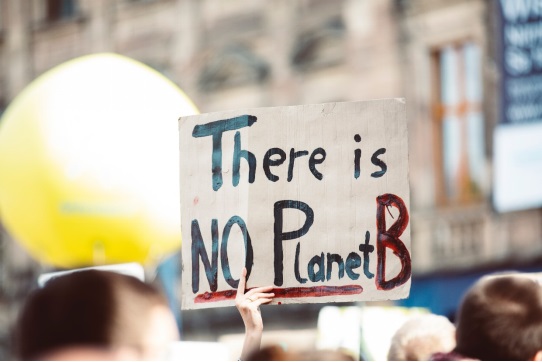Introduction
Climate change is a global crisis that transcends political borders and affects every aspect of our lives. While the environmental consequences are widely discussed, the economic repercussions are equally significant. In this article, we will delve into the monetary language of climate change, exploring the direct and indirect costs it incurs upon societies and economies worldwide.
The Rising Price Tag of Extreme Weather Events
One of the most palpable effects of climate change is the surge in extreme weather events. These events, including hurricanes, droughts, wildfires, and floods, have become more frequent and intense. As a result, the economic burden has skyrocketed. In 2020 alone, the United States experienced a record-breaking 22 separate billion-dollar weather and climate disasters, costing over $100 billion each. This increase in disaster-related expenses diverts funds away from critical infrastructure and public services, ultimately impeding economic growth.
Agricultural Challenges and Food Security
Climate change disrupts agricultural patterns, leading to reduced crop yields, increased pests and diseases, and a rise in food prices. The Intergovernmental Panel on Climate Change (IPCC) predicts that the yield of major crops could decline by up to 30% by 2050. For developing nations heavily reliant on agriculture, this poses a significant threat to their economic stability and food security.
Health Care Costs
Extreme heat events, the proliferation of vector-borne diseases, and the increase in air pollution due to climate change have serious implications for public health. These climate-induced health issues result in higher medical bills, reduced productivity, and increased absenteeism. A report by the World Health Organization (WHO) estimates that the health costs associated with climate change could exceed $4 billion per year by 2030.
Infrastructure Damage and Maintenance
Rising sea levels, more intense storms, and increased precipitation contribute to the degradation of infrastructure, including roads, bridges, and public buildings. Repairing and maintaining these structures is not only costly but diverts resources that could be allocated elsewhere, such as education or healthcare.
Energy Sector Disruptions
The energy sector plays a crucial role in our economies, and it’s directly impacted by climate change. The increased frequency of heatwaves can lead to energy grid failures, and extreme weather events can disrupt energy production and distribution. Moreover, the transition to cleaner energy sources, though necessary, often requires substantial investments in new infrastructure and technologies.
Migration and Displacement
As the impacts of climate change intensify, people in vulnerable regions may be forced to migrate due to droughts, flooding, or other environmental disasters. This mass migration can strain the resources and infrastructure of host countries and lead to economic and social tensions.
Insurance Industry Challenges
Climate-related damages have led to increased insurance claims. As the frequency and severity of climate-related events continue to rise, the insurance industry faces higher costs, which are ultimately passed on to consumers. Additionally, some insurers are becoming more selective about the coverage they offer in high-risk areas, leaving property owners with fewer options and potentially lower property values.
Impacts on Investment and Finance
Investors and financial institutions are recognizing the financial risks associated with climate change. As a result, they are becoming more cautious about supporting industries with high carbon footprints. Companies that do not adapt to sustainable practices may find it increasingly difficult to secure investments and loans, potentially hindering their growth and profitability.
Loss of Biodiversity and Ecosystem Services
Climate change poses a threat to biodiversity, leading to the loss of valuable ecosystem services such as pollination, water purification, and climate regulation. These services are essential for agriculture, tourism, and countless other economic activities. As they decline, the economic toll on industries dependent on these services becomes evident.
International Trade Disruptions
Climate-induced events can disrupt global supply chains, impacting trade and commerce. For instance, severe weather events can damage key infrastructure in port cities, leading to delays and increased shipping costs. Additionally, shifts in agricultural production due to climate change can affect international food trade, leading to price volatility and potential food shortages.
Conclusion
The consequences of climate change are far-reaching and profound, with significant economic implications. From the rising costs of extreme weather events to the challenges faced by agriculture, health care, and the insurance industry, the monetary language of climate change is clear—it is a costly crisis that demands attention and action. As we strive to mitigate its effects and transition to a more sustainable future, it is essential to recognize that addressing climate change is not just an environmental imperative but an economic one as well. Failure to do so could lead to even greater financial burdens and disruptions in the years to come.







